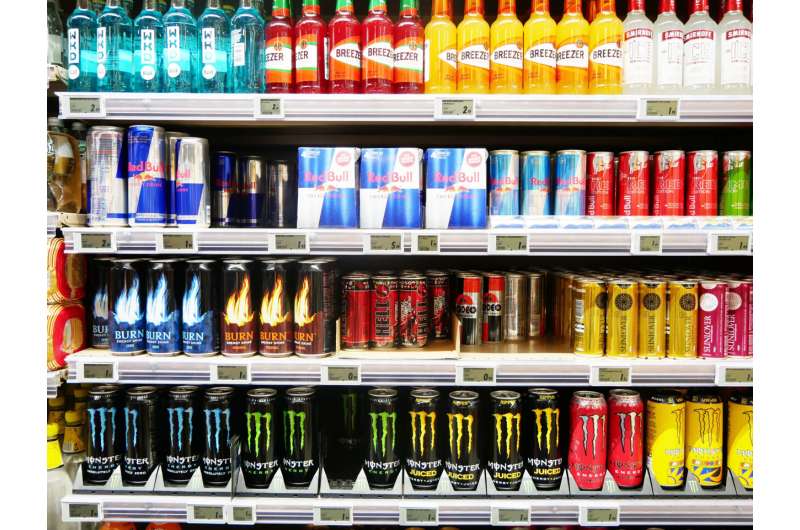
Young people in deprived areas are drinking more energy drinks while the total falls in wealthier communities, according to new research.
The results paint a picture of widening inequality between the richest and poorest families in the UK, signaling growing health concerns for teenagers from disadvantaged backgrounds.
Researchers from the University of Southampton and City, University of London examined energy drink habits in young people. They then assessed links with deprivation and dietary inequalities.
They found that every extra £1,000 in annual household income was associated with being 2% less likely to consume energy drinks.
Researchers say the study, published in Public Health Nutrition, highlights the need for a ban on the sale of energy drinks to young people under 18 years of age.
Eight years of data
Energy drinks contain large amounts of caffeine and sugar. Current UK sales are estimated at 680 million liters per year, with young people the biggest consumer group.
This study was led by researchers from the National Institute for Health and Care Research (NIHR) Southampton Biomedical Research Centre, Medical Research Council (MRC) Lifecourse Epidemiology Centre, NIHR Applied Research Collaboration Wessex and Centre for Food Policy, City, University of London.
It used data on 2,587 participants from the National Diet and Nutrition Survey (NDNS), collected between 2008 and 2016. They ranged from 11 to 18 years of age. Each participant completed a food diary with details of what they ate and drank on four consecutive days.
The researchers also interviewed parents, teachers and adolescents in Hampshire through the Engaging Adolescents in Changing Behaviour (EACH-B) program.
Increasing inequalities
Analysis of the NDNS data showed that young people from deprived areas and lower income households are more likely to drink energy drinks than those from affluent areas and households.
This difference increased between 2008 and 2016. During this period, energy drink consumption by young people decreased across the UK. However, it continued to rise in deprived areas.
The researchers also found that children and teenagers who drink lots of energy drinks are more likely to eat unhealthily. Some of the teachers interviewed for this study expressed alarm at how this was affecting students’ school attendance and ability to learn.
Professor Mary Barker is the Principal Investigator of the EACH-B program and a Professor of Psychology and Behavioural Science at the University of Southampton. She said, “This inequality in energy drink intake is concerning, particularly as it increased during the eight-year period. Evidence shows that energy drinks are harmful to both the physical and mental well-being of young people. However, many adolescents do not understand why they are unhealthy and are unaware of the harm they are doing to their body.”
Time for change
In 2019, the UK Government announced that they would ban the sale of energy drinks to under 16s to help reduce childhood obesity. This ban is yet to be put in place.
Some major retailers have imposed voluntary bans on the sale of energy drinks to those under 16. Many schools have also introduced voluntary bans on their premises. However, data from this latest research suggests many young people think these voluntary bans do not work.
Professor Christina Vogel, Professor of Food Policy at City, University of London and University of Southampton, and lead author of the paper, said, “The findings from this important study provide support for a ban on the sale of energy drinks to young people. Such a ban could help reduce inequalities in energy drink intake and improve the health of children and young people.
“However, our research indicates that the ban should also be raised to 18 years. This would support 16–18-year-olds from disadvantaged backgrounds who consume the most energy drinks to reduce their consumption.”
More information:
Christina Vogel et al, Inequalities in energy drink consumption among UK adolescents: a mixed-methods study, Public Health Nutrition (2022). DOI: 10.1017/S1368980022002592
Journal information:
Public Health Nutrition
Source: Read Full Article



